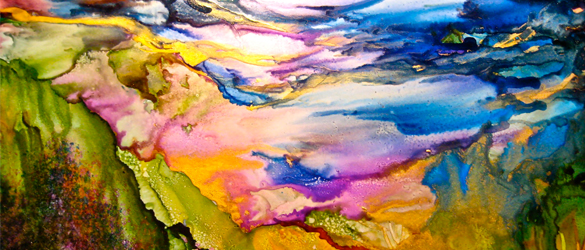“The Art of Listening Isn’t Hard to Master”
Listening at
a poetry reading
is altogether
another matter.
– Wendy Videlock, Nevertheless
And yet Wendy Videlock makes it easy. During a private poetry reading at my kitchen table – I was reading her poems; Videlock wasn’t in attendance – I had no trouble at all reading through her collection, Nevertheless. She has a playfulness with the language and an undeniable wit that makes her work rather difficult not to enjoy. Nevertheless is a wonderful synthesis of traditional forms and modern subjects, heavy themes and quick one-liners, self-awareness and unanswered questions. In her first full-length book of poetry, Videlock lets us experience her love affair with language.
Wendy Videlock hails from Western Colorado, and that reflects in some of her poetry. Natural themes – poems titled “Coyote,” “Saguaro,” “Owl,” among others – provide a sense of folk art, something earthy and gritty and mystical in its simplistic connection to the world. But nothing in Nevertheless is quite as simplistic as it would seem at first. Videlock’s Coyote wrestles with Thor and Kokopelli appears in a poem with Moses. The poem “Hawk” combines Videlock’s love of simple language with her complexity of self-awareness. Within the forest “green is green and blue is blue,” but the hawk, the folk art symbol of freedom, has “yellow eyes and a busted wing.” She ends the poem “and deep in the forest, no one knew.” It’s a theme that repeats itself over and over in the collection, the sense of self in connection to the world without really knowing how.
Perhaps the greatest strength of Videlock’s poetry is that it’s easy to follow. She writes poems that are accessible and include themes of everyday life, from the relationship between husband and wife, mother and child, to your reaction upon seeing your neighbor’s clothesline, to all the different ways to think about sex. I found these poems to be some of her most charming; they are disarmingly simple in form and remarkably precise in language. One of my favorites:
“The Idle”
He watches ball.
She throws a fit.
She cannot stand
to see him sit.
Language is one of her favorite themes in this book. Entire poems dedicated to listing words – “Charge,” a list of verbs and “Some Sounds I Couldn’t Do Without,” another poem comprising some of the best-sounding words in the English language. Every poem is rendered with a masterful understanding of how words fit together on a page and how they sound within your mind. Videlock thrives on twisting your eyes and delighting your ear. She has her own take on the sonnet form and haiku, often places the title as the opening line (such as in the poem that opens this article) and fills her poems start to finish with enjambments, including a poem with the namesake.
But if it seems like Nevertheless is all skin-deep and no heart, make no mistake, Videlock isn’t one to shy away from the pressing issues of the day. She tackles them head-on with the same sharpness and biting wit that all of her poems share. One poem entitled “Change” seems particularly relevant. Upon reading it, the stark simplicity of Videlock’s words smacked of truth.
Change is the new,
improved
word for god.
In the same simple manner of all her poems, Videlock calls into stark reality the power of our current desires for change. “Mighty enough,” she says, “like other gods, to shelter, bring together, and estrange us.” To me, this poem feels undeniably political. It screams of disappointment and desperation. “Please god, we seem to say, change us.” Into what, Videlock doesn’t say.
As a poet, Videlock doesn’t try to provide the answers. She asks the questions, which are usually slipped into the final line of a poem to catch the reader off guard and leave that one simple phrase echoing in their mind. Her poems have the ability to elicit humor, smiles, and that subtle shifting in your belly when you know something isn’t quite as right as it ought to be. Summed up:
What I’ve learned
throughout the years
is what I know
of wisdom is so small
it disappears.
Nevertheless – it’s the rebuttal to an argument, the pressing on when things are tough, an important reminder in the face of opposition, the lighter side of a dark situation.
Artwork by Wendy Videlock. To view more of her art, click HERE.




Bravo. The review sings. It makes me want to read the poems. Judicious use of portions of the poems makes me want more.